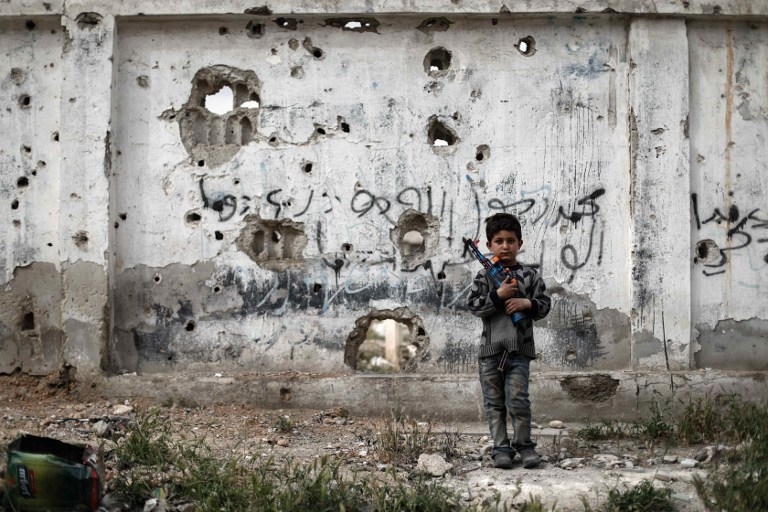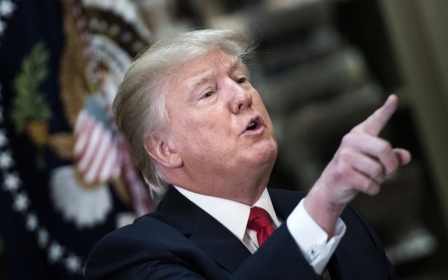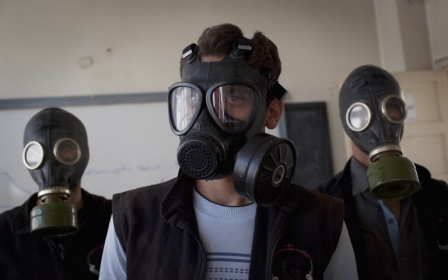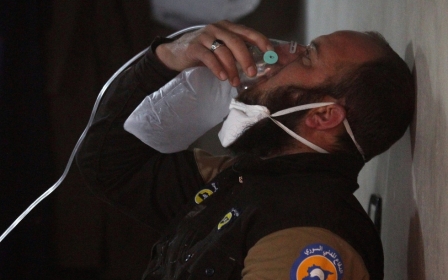UK, France: World has 'moral duty' to go further on Syria

The British and French foreign ministers have urged stronger action against the government of Syria's President Bashar al-Assad, in the wake of an alleged chemical weapons attack, an incident in which at least 87 civilians died.
"The international community has a moral duty to go further," Boris Johnson and Jean-Marc Ayrault wrote in the Guardian on Saturday.
"It is our responsibility to uphold the strict prohibition of chemical weapons. It is our responsibility to ensure that those who conducted such chemical attacks are held accountable. It is crucial for international peace and security."
On 7 April, the US launched cruise missiles at the Syrian air base from which it says chemical weapons were launched at the town of Khan Sheikhun in Idlib, a few days earlier.
'Catalogue of false claims'
British scientists, who have looked at samples from the site gathered by Turkey, say that Sarin or a "Sarin-like" substance was used in the attack.
Assad has said the attack was a "fabrication" and Russia has claimed that a rebel-held chemical weapons cache was hit.
The Organisation for the Prohibition of Chemical Weapons has begun an investigation into the attack.
Meanwhile, Russia blocked on Wednesday a draft resolution at the UN Security Council, which would have demanded that the Syrian government cooperate.
The foreign ministers wrote that they "deeply regret" that the UN Security Council "was unable to demonstrate unity".
The draft, they said "was simple and balanced. Russia vetoed it – its eighth veto on Syria since 2011. This veto was accompanied with a catalogue of false claims meant to sow doubts about the regime’s responsibility."
At the G7 meeting of foreign ministers last week, which was held before the UN Security Council vote, Johnson failed to secure sufficient support for new sanctions against Russia.
While the Guardian article does not mention sanctions, it stresses the need for a ceasefire that came into effect late last last and is supposedly still in place to be strengthened, and for "renewed energy" to be injected into the political process.
"Syrians are suffering. The security council is divided and therefore unable to put an end to their suffering. We must bring back unity. We must tackle this awful crisis that undermines the core values of humanity," the article said.
Evacuation deal stalled
On the ground in Syria on Saturday, an evacuation deal between rebel- and government-held towns was stalled.
Thousands of people were stuck in and around Aleppo, a monitor and activists said.
Rebels and civilians who had left Madaya near Damascus on Friday sat outside rows of coaches in government-held Aleppo city, waiting to move on to their final destination of rebel-held Idlib, pictures sent by a pro-opposition activist showed.
Meanwhile residents and pro-government fighters who had left the two rebel-besieged Shia villages in Idlib province waited still in rebel-held territory on Aleppo's outskirts to cross into the city, the Syrian Observatory for Human Rights said.
The Britain-based Observatory said the delay was because rebel fighters from another town included in the deal, Zabadani near Damascus, had not yet been granted safe passage out.
New MEE newsletter: Jerusalem Dispatch
Sign up to get the latest insights and analysis on Israel-Palestine, alongside Turkey Unpacked and other MEE newsletters
Middle East Eye delivers independent and unrivalled coverage and analysis of the Middle East, North Africa and beyond. To learn more about republishing this content and the associated fees, please fill out this form. More about MEE can be found here.




